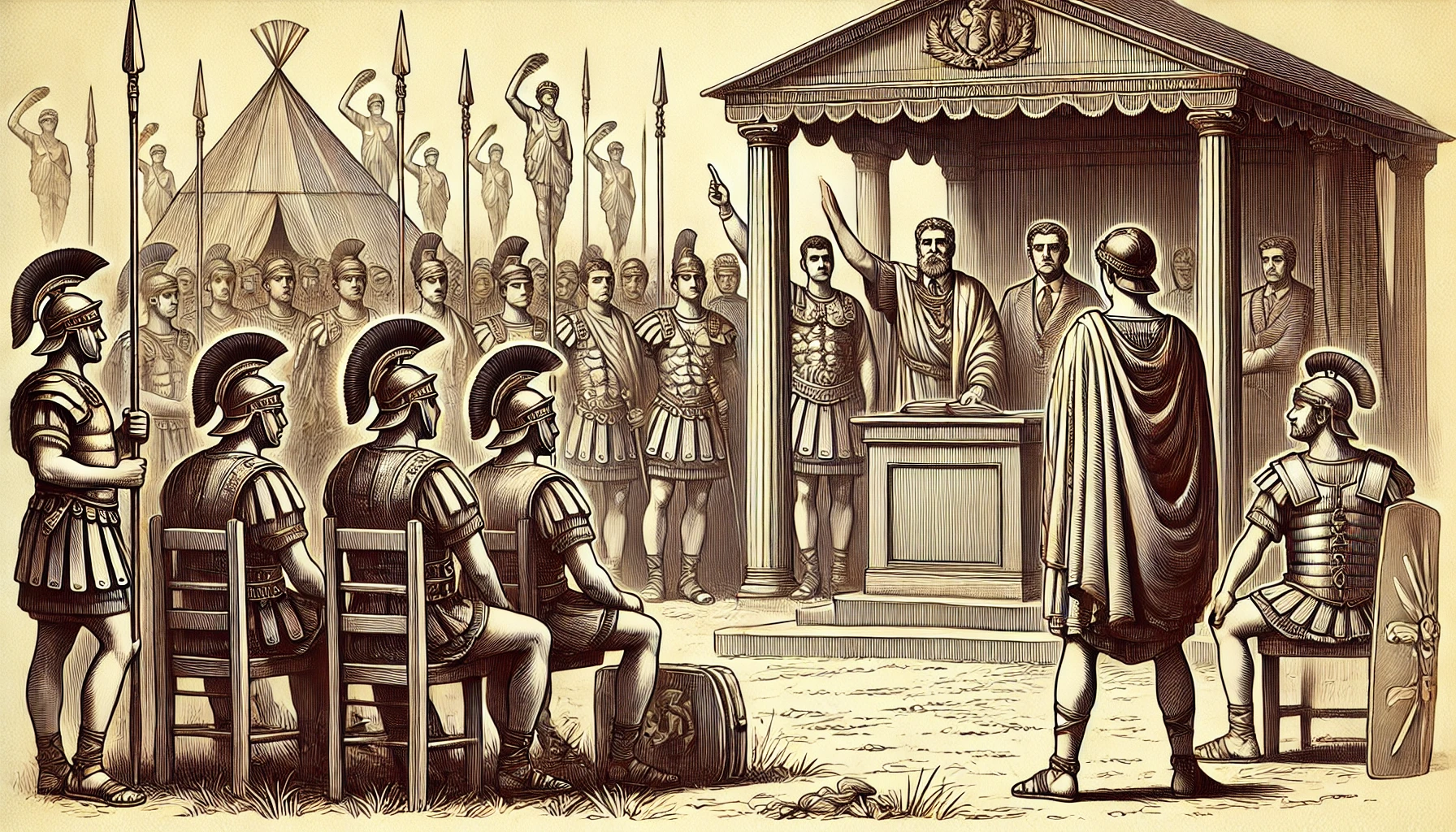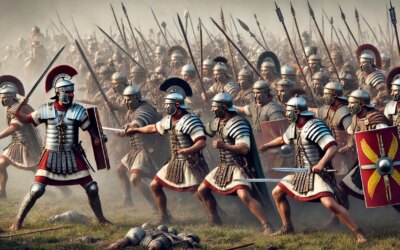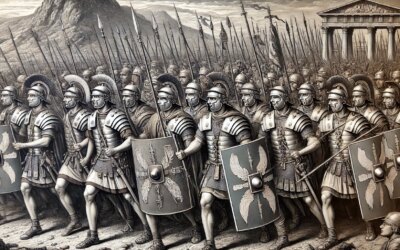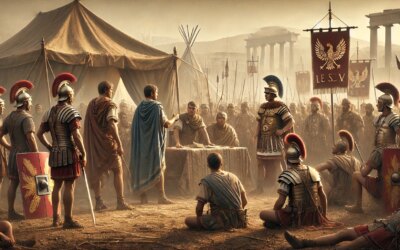Discipline on the March: Justice in the Roman Army
To serve in the Roman legions was to live by a code—rigid, merciless, and essential to the empire’s power. In the 1st century AD, the Roman army functioned not only as a fighting force but also as a self-contained society governed by strict laws. At the heart of this structure stood the military tribunal: a space where order was imposed, transgressions judged, and discipline maintained with an iron hand.
The Foundation of Military Justice
Rome’s military tribunals were based on the principle that discipline preserved victory. As early as the Republic, commanders wielded vast authority over their troops. By the imperial era, especially under emperors like Augustus and Tiberius, the army’s legal framework had become codified and formalized, yet retained the autocratic nature of Roman command.
Military law, or disciplina militaris, was distinct from civilian law. Soldiers were judged according to internal codes, with tribunals convened by commanding officers and centurions to resolve disputes or punish breaches of conduct.
Who Held the Gavel?
Military tribunals were convened by the legatus legionis (legionary commander) or a tribunus militum (tribune). They could include senior centurions and other officers acting as judges or advisers. In some cases, military jurists or legal specialists were consulted, but most judgments relied on military tradition and precedent.
The commander’s word was final. While appeals existed in theory—to the emperor, for instance—they were rare and often impractical in wartime conditions. In essence, the legion was a law unto itself.
Offenses and Their Consequences
Roman soldiers could be tried for a wide range of offenses, including:
- Desertion: Considered one of the gravest offenses, often punished by death.
- Cowardice or insubordination: Could result in decimation—execution of every tenth man in a unit.
- Theft or assault: Especially if committed against comrades or civilians.
- Neglect of duty: Sleeping on guard duty or losing one’s weapon was harshly punished.
- Mutiny: Led to mass punishments, including beatings, exile, or mass execution.
Punishments varied: flogging, fines, reduction in rank, loss of honors, or execution by sword or club. For less severe cases, soldiers might be confined, put on extra duties, or publicly humiliated.
The Trial Process
Tribunals were typically held in camp, on the march, or before battles. Accusations were presented, often by centurions or fellow soldiers. The accused could defend themselves, sometimes with a fellow soldier acting as advocate. Witnesses were heard, and decisions rendered swiftly.
The process was informal compared to civilian courts, yet marked by ceremony. A tribunal might take place before the standards of the legion, with all watching—a reminder to the rank-and-file that discipline was not negotiable.
Justice or Fear? The Role of Punishment
Roman military justice was not about fairness in a modern sense. It was about maintaining cohesion, obedience, and fear. The most extreme example, decimation, was a collective punishment used rarely but effectively. Entire cohorts paid the price for cowardice or mutiny, ensuring no man felt safe in disobedience.
Yet justice also served to reinforce the bonds of loyalty. Soldiers respected commanders who were just as well as strict. Many emperors—such as Vespasian and Trajan—earned deep loyalty by balancing harsh discipline with consistent reward and recognition.
Appeals and Clemency
In peacetime, or under certain emperors, soldiers could appeal punishments. The emperor was the ultimate arbiter of justice, and letters or petitions might be sent to the imperial court. Clemency was occasionally granted—especially for politically motivated trials or cases with public resonance.
Commemorative inscriptions and military diplomas occasionally mention acquittals or pardons, revealing that military justice had shades of mercy, even amid its rigidity.
Evidence from History
Ancient sources offer vivid accounts of military justice. Tacitus describes tribunals under Germanicus in Germania; Suetonius recounts trials of soldiers during the mutinies of 14 AD. Inscriptions from Vindolanda and other frontier forts provide direct evidence of charges, punishments, and legal disputes among soldiers.
One famous case involved a centurion accused of abusing his men, brought before his legate and removed from command. In another, a soldier was flogged for looting during unauthorized leave. These incidents reveal an institutionalized, yet often brutal system of enforcement.
The Lasting Influence
Rome’s military justice system set precedents for future armies, including in Byzantium, medieval Europe, and modern military codes. The notion of separate law for soldiers, swift justice, and command accountability continues in modern courts martial and disciplinary codes.
The Roman military tribunal was not merely about order—it was about the survival of the empire. By enforcing discipline within its most powerful institution, Rome ensured that its legions remained cohesive, fearsome, and loyal to the state.
Order Forged in Iron
Behind every Roman victory stood a line of disciplined men—and behind them, the fear of the tribunal. Military justice was the crucible of the legion, shaping its character and ensuring its survival. In the shadow of swords and standards, Rome’s soldiers marched not just with arms, but with the weight of law on their shoulders.






